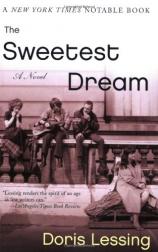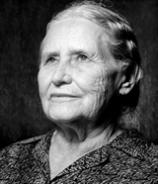Excerpt
Excerpt
The Sweetest Dream: A Novel

Chapter One
An early evening in autumn, and the street below was a scene of small yellow lights that suggested intimacy, and people already bundled up for winter. Behind her the room was filling with a chilly dark, but nothing could dismay her: she was floating, as high as a summer cloud, as happy as a child who had just learned to walk. The reason for this uncharacteristic lightness of heart was a telegram from her former husband, Johnny Lennox -- Comrade Johnny -- three days ago. SIGNED CONTRACT FOR FIDEL FILM ALL ARREARS AND CURRENT PAYMENT TO YOU SUNDAY. Today was Sunday. The 'all arrears' had been due, she knew, to something like the fever of elation she was feeling now: there was no question of his paying 'all' which by now must amount to so much money she no longer bothered to keep an account. But he surely must be expecting a really big sum to sound so confident. Here a little breeze -- apprehension? -- did reach her. Confidence was his -- no, she must not say stock-in-trade, even if she had often in her life felt that, but could she remember him ever being outfaced by circumstances, even discomfited?
On a desk behind her two letters lay side by side, like a lesson in life's improbable but so frequent dramatic juxtapositions. One offered her a part in a play. Frances Lennox was a minor, steady, reliable actress, and had never been asked for anything more. This part was in a brilliant new play, a two-hander, and the male part would be taken by Tony Wilde who until now had seemed so far above her she would never have had the ambition to think of her name and his side by side on a poster. And he had asked for her to be offered the part. Two years ago they had been in the same play, she as usual in a serviceable smaller role. At the end of a short run -- the play had not been a success -- she had heard on the closing night as they tripped back and forth taking curtain calls, 'Well done, that was very good.' Smiles from Olympus, she had thought that, while knowing he had shown signs of being interested in her. But now she had been watching herself burst into all kinds of feverish dreams, not exactly taking herself by surprise, since she knew only too well how battened down she was, how well under control was her erotic self, but she could not prevent herself imagining her talent for fun (she supposed she still had it?) even for reckless enjoyment, being given room, while at the same time showing what she could do on the stage, if given a chance. But she would not be earning much money, in a small theatre, with a play that was a gamble. Without that telegram from Johnny she could not have afforded to say yes.
The other letter offered her a niche as Agony Aunt (name still to be chosen) on The Defender, well paid, and safe. This would be a continuation of the other strand of her professional life as a freelance journalist, which is where she earned money.
She had been writing on all kinds of subjects for years. At first she had tried her wings in local papers and broadsheets, any place that would pay her a little money. Then she found she was doing research for serious articles, and they were in the national newspapers. She had a name for solid balanced articles that often shone an unexpected and original light on a current scene.
She would do it well. What else had her experience fitted her for, if not to cast a cool eye on the problems of others? But saying yes to that work would have no pleasure in it, no feeling she would be trying new wings. Rather, she would have to steady her shoulders with the inner stiffening of resolve that is like a suppressed yawn.
How weary she was of all the problems, the bruised souls, the waifs and strays, how delightful it would be to say, 'Right, you can look after yourselves for a bit, I am going to be in the theatre every evening and most of the day too.' (Here was another little cold nudge: have you taken leave of your senses? Yes, and she was loving every minute.)
The top of a tree still in its summer leaf, but a bit ragged now, was glistening: light from two storeys up, from the old woman's rooms, had snatched it from dark into lively movement, almost green: colour was implied. Julia was in, then. Readmitting her mother-in-law -- her ex-mother-in-law -- to her mind brought a familiar apprehension, because of the weight of disapproval sifting down through the house to reach her, but there was something else she had only recently become aware of Julia had had to go to hospital, could have died, and Frances had to acknowledge at last how much she relied on her. Suppose there was no Julia, what would she do, what would they all do?
Meanwhile, everyone referred to her as the old woman, she too until recently. Not Andrew, though. And she had noticed that Colin had begun to call her Julia. The three rooms above hers, over where she stood now, below Julia's, were inhabited by Andrew the elder son, and Colin the younger, her and Johnny Lennox's sons.
She had three rooms, bedroom and study and another, always needed for someone staying the night, and she had heard Rose Trimble say, 'What does she need three rooms for, she's just selfish.'
No one said, Why does Julia need four rooms? The house was hers. This rackety over-full house, people coming and going, sleeping on floors, bringing friends whose names she often did not know, had at its top an alien zone, which was all order, where the...
Excerpted from The Sweetest Dream © Copyright 2003 by Doris Lessing. Reprinted with permission by HarperPerennial, an imprint of HarperCollins. All rights reserved.
The Sweetest Dream: A Novel
- paperback: 496 pages
- Publisher: Harper Perennial
- ISBN-10: 0060937556
- ISBN-13: 9780060937553








